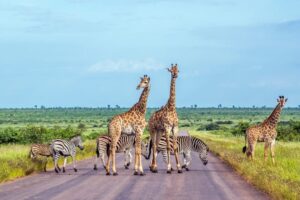Peru
Peru, in South America, is a stunning country of rich Amazon rainforest and home to historical landmark and one of the Seven Wonders of the World, Machu Picchu, the ancient Incan city which sits high up in the mountains of the Andes. Machu Picchu is the most visited site in Peru, and, indeed, the whole of South America, but there’s a lot more to Peru than this one highlight.
Make an online bookingTravel Health Information
Highly recommended
vaccinations for travelling here
Advisory
vaccinations for travelling here
When visiting Peru, it’s imperative to take sensible precautions regarding personal safety and security, as street crime including theft and pickpocketing is common. These precautions include avoiding travelling alone at night, carrying valuables on your person and keeping a close watch on personal belongings in busy areas.
If you take a taxi, be sure to book in advance through a reputable firm. And, for those travelling by bus, be aware that road and vehicle maintenance, as well as driving standards in Peru, are not the same as in the UK.
To keep yourself healthy while in Peru, it’s important to prevent food poisoning and other hygiene-related bugs and avoid insect bites as much as possible. The weather can be hot and sunny, so stay hydrated by drinking bottled water, and use appropriate sun protection. Altitude sickness is also a risk for those considering trekking, climbing or taking part in other sports in the mountains. Make sure you know the signs and symptoms; also, ensure you have a means of seeking help if you or someone in your party begins to suffer.
Medical treatment is available in the main cities and towns but can be expensive. Ensure that you have sufficient travel insurance in place for all planned activities, which includes repatriation if necessary. UK health authorities have classified Peru as having a risk of Zika virus transmission. Take suitable precautions to avoid being bitten by mosquitos for the duration of your stay, and if you are pregnant or planning to become pregnant, you may want to reconsider your trip to Peru.

Your nearest CityDoc clinic
Find a clinic
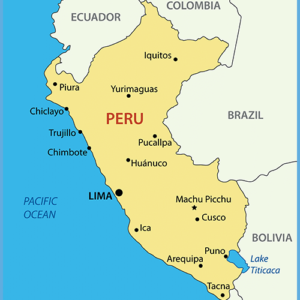
Destination Information for Peru
Mountain ranges and jungles, quiet colonial towns and villages and staggering modern cities, beautiful beaches and vast deserts, the contrasts are incredible. Tourists can try their hand at surfing, catch a tan on the beach, trek the iconic Inca Trail and take part in a variety of adrenaline sports including kayaking, horseriding, paragliding and much more. If you fancy a change of pace, you can opt to stroll around cobbled streets, sample some of the delicious traditional foods and shop for gifts and souvenirs at street markets.
Famously, ‘deepest, darkest Peru’ is also the origin of the much-loved character, Paddington Bear.
Overall, Peru is a complex country with many facets: fabulous wildlife, scenery, ancient civilisations and ruins and a colourful carnival culture; when visiting Peru you can also take in the noise and bustle of the chaotic capital, Lima.
Tourists in Peru can take their pick from accommodation ranging from basic hostels and guesthouses to 5 star hotels and resorts catering for package holidays. While December to February is high season for beaches and the coast, the Inca Trail is closed for rainy season in the highlands – check your specific destination and itinerary carefully to find the best time for your trip.
With so much to see in a country with such rich history, ensure your trip isn’t interrupted through illness by receiving the correct travel vaccinations. The recommended vaccines include Hepatitis A, Typhoid, and Tetanus, Diphtheria and Polio. Yellow Fever Vaccination is recommended for those aged 9 months of age and older travelling to parts of Peru.
In addition, vaccines such as rabies, and hepatitis B may pose a risk so visit one of our travel clinics for a consultation to find out exactly what you need.
There is a point of elevation in this country higher than 2,500 metres. Some example places of interest: Machu Picchu 2,430m, Cusco 3,399m; Inca trail max ~4,200m; Pisac 2,972m; Cerro de Pasco 4,330m; La Rinconada 5,100m; Puno 3,827m so please discuss altitude sickness at your consultation too.
Infections and Outbreaks frequently change from country to country and by attending our clinics you will be given the most up to date clinical and safety advice from our team of specialists. Our advice to you often includes aspects such as:
- Food and water hygiene
- Insect and animal bite avoidances
- Personal safety
- Sexually transmitted infections
- Sun protection
- Altitude sickness
Essential Trips
Inca Heartland Sacred Valley
Machu Picchu
visit the mesmerizing ruins of the Inca empire
Inca Trail
25,000 km network connecting their vast empire
Cusco
declared a World Heritage Site by UNESCO in 1983
Cusco was once the heart of the Inca empire and serves as the gateway to the Sacred Valley.
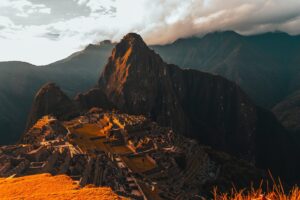
Canyon Country
Lake Titicaca
At 12,500 feet, it’s the highest altitude lake.
White City of Arequipa
Re-founded by Spanish in 1540 made mostly from white volcanic rock.
White water Rafting
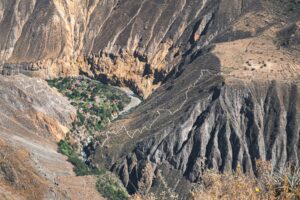
Lima
Peru’s bustling coastal capital is the site of beautiful colonial architecture and pre-Inca sites. With its excellent museums, energetic night life and fine gastronomic delights it’s a must see.
It has a number of highlights including World class museums
Plaza de Armas
Site where Franscisco Pizarro
founded Lima
San Francisco
religious complex including
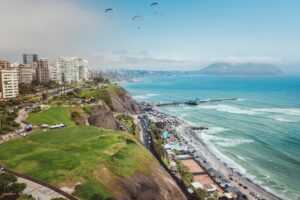
Travel news
Helpful travel news, tips and advice for travelling around the world

Water Hygiene While Travelling: What You Need to Know
Get the facts straight: Common myths about water hygiene while travelling debunked here.
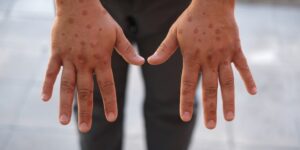
Mpox- How dangerous is it?
With the recent WHO announcement regarding the outbreak of Mpox in Africa there has been a concern of its transmission to other countries.
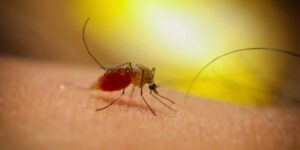
Pregnancy and Malaria
A malaria infection can cause complications during the pregnancy to mother and the baby.
For the latest government travel advice
For anyone planning to travel abroad we recommend visiting the following government website for all the latest travel guidance and advice.
Travel health enquiries
For all travel health enquiries, simply contact us below.
